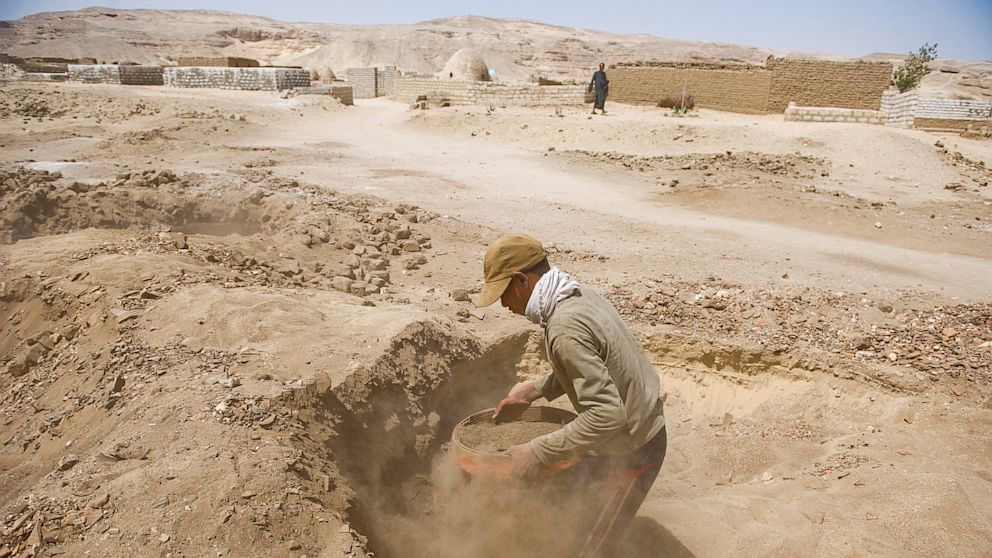Vanishing Treasures: Tomb Raiders Exploit Chaos in Egypt
Egypt's cultural heritage is in danger.

Aug. 4, 2013— -- Egypt's cultural heritage is in danger. Grave robbers, sometimes heavily armed, are taking advantage of political chaos to plunder its poorly guarded archaeological sites. Authorities feel powerless to stop them and fear that ancient treasures might be lost forever.
A few hundred meters from the pyramids of Dahshur, the sandy-brown earth is full of holes. Dozens of open shafts lead into the depths, some up to seven meters (23 feet) long. Grave robbers have been at work. Lying belowground here in Dahshur is one of the oldest burial grounds in all of Egypt -- tombs, possibly full of treasures from the age of the pharaohs. Archaeologists have partially mapped it but never exhumed its contents, as is the case at many sites in Egypt.
From the pharaohs and Romans to the Greeks, Copts and Fatimids, Egypt bears the traces of many ancient civilizations. Not all of the treasures have been discovered and secured. Egypt has admittedly always had to grapple with the problem of grave-robbing. But since the revolution in 2011, "this phenomenon has increased even more," laments Abdel-Halim Nur el-Din, a professor of archaeology and the former head of the Supreme Council of Antiquities (SCA), the authority responsible for ancient relics and archaeological excavations in Egypt. "We are losing our cultural heritage piece by piece," he adds.
Gangs of Thieves Plunder at Will
In January 2011, the world-famous Egyptian Museum in Cairo was looted. Rioters destroyed priceless treasures. But valuable ancient relics went missing far from the capital, as well, due to a lack of supervision at historical sites. After the uprising, the repressive security apparatus withdrew everywhere, and the guarding of historical sites was neglected.
Two-and-a-half years later, the police are slowly venturing into the streets. But they are mainly concerned with ongoing protests. Elsewhere, some Egyptians are behaving as if the state and its laws have ceased to exist.
The army has placed two armored vehicles at the pyramids in Dahshur to deter grave robbers. But, so far, the thieves are undaunted. "We wanted to catch them," says a guard in Dahshur who asked to remain anonymous. "But then they opened fire on us with automatic weapons." He and his fellow guards were only armed with pistols. They jumped for cover, and the grave robbers carried on with their plundering.
The gangs are also getting bolder. At the pyramids of Saqqara, they advanced with weapons and cleared out a state-owned storehouse. According to the SCA department head in charge of the facility, it contained small statues. There have even been illegal excavations in the tourist centers of Aswan and Luxor, which experts attribute to organized gangs. Instead of shovels, some even bring along small excavators.
"Antiquities theft is a very profitable business," says Professor Nur el-Din. "The government must make it a priority to stop the illegal excavations." Guarding antiquities sites should be the focus, he adds. For everything else, such as excavation or restoration, there is simply no money anyway.
Stolen Artifacts Irrevocably Lost
Still, the recent thefts are not even the most pressing concern for the SCA. Its offices are suffering from one of the country's all-too-familiar power shortages. Employees are sitting in the dark, their computers switched off. Temperatures hovering around 43 degrees Celcius (109 Fahrenheit) are not helping matters, either.




